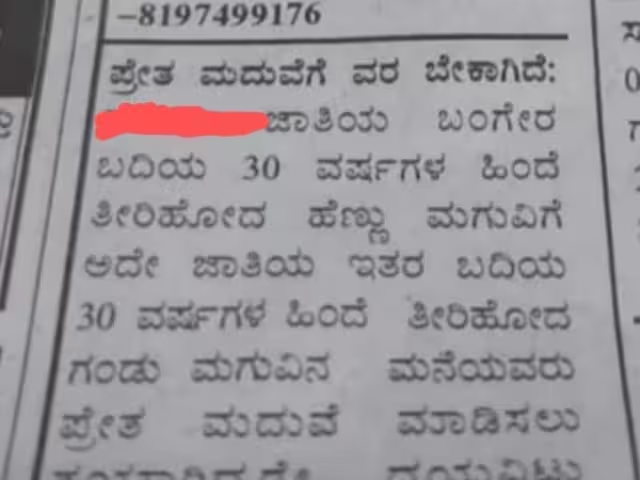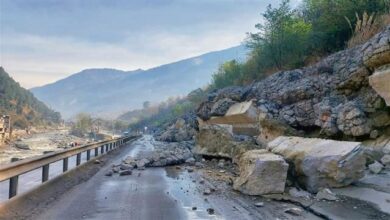Reels’ resistance
“I’ve been on this land since before swords made people prey to themselves.” There’s where I belong. I give heaven back to her mother while she is grieving for her. And I weep so that my tears can be carried by a returning cloud. I have acquired all the vocabulary required for a blood trial in order to violate the regulations. I have studied every word and broken it down to come up with only one: home.

These are some excerpts from the poem “I Belong There” by Palestinian poet and writer Mahmoud Darwish. Exile, sorrow, love, and desire for a nation he was unable to return to are among the subjects the poet has tackled. The Israel-Gaza conflict started more than 150 days ago. We are constantly reminded of the suffering that people endure in their own country as a result of the war and other crimes. Before the hardships became more severe, independent documentary director Carol Mansour turned her camera to her mother Aida Abboud. The result is the 2019 documentary Aida Returns, which follows Aida as she travels back to her native Yafa. Koogai Thiraipada Iyakkam is getting ready to present the movie as part of Synchronized Global Screening in Chennai in collaboration with Alt+Art.
Recording a voyage
1948 saw the forcible removal of Aida, a resident of Yafa, Palestine, with only enough belongings for a two-week holiday. She had no idea that it would be the last time she saw it in her lifetime. “I started filming my mother (Aida) for purely personal reasons because once she developed Alzheimer’s disease, she steadily lost her memory and her sense of identity,” the filmmaker says, outlining the film’s path. I thought at the time that I had to “hold on” to my mother before the illness became worse. I was in Beirut while she was in Montreal, and as she became worse, I visited her more often.
The topic of Yafa and her early years there before to 1948 has often come up since Carol began photographing her mother in 2006. The filmmaker says about Yafa, that even if she lived a very wealthy existence in Beirut, Cairo, and Montreal, it was always her. “Aida had made it clear that she wished to be cremated when she passed away,” the speaker adds. I brought all the interview video and some of her ashes back to Beirut with me after the burial. I’ve always thought that she would have wanted to spend her last resting place in Yafa. I hung onto the ashes, thinking maybe one day I might have a chance to bring her back. After almost four years, I worked up the courage to see the video. One thing became obvious: she wanted to go back.
By coincidence, Tanya, Carol’s friend, recommended that she bring the ashes back when she paid her a visit. She could do that because she’s a citizen of the United States. As we separated the ashes into two parcels, one of which she delivered to another American colleague who would transport them to Jerusalem, what had begun as a light talk quickly gained enormous speed. We recorded this procedure using her iPhone so that I could share it with my loved ones. In order for me to be practically with them, she also videotaped the whole journey to Ramallah. I got tens of little movies showing them returning to Palestine and meeting people who were eager to assist Aida on her trip back; all of them were recorded,” she says.
“This is a versatile and controversial film, an important watch, especially during the current situation,” assert Alt+Art organizers Krishna and Jay. Several locations, including Amman, Amsterdam, Athens, Bahrain, Barcelona, Doha, Dubai, New York, Palestine, and so on, are showing the movie concurrently. Additionally, Aida’s birthday falls on this day. We are working with the Vanaja Collective, an organization that finds, makes, and creates places for populations that have traditionally been marginalized. We couldn’t be happier with this partnership. The event is open to the public and may accommodate up to 70 persons.
At 7:00 p.m., Koogai Thiraipada Iyakkam will host the screening.







